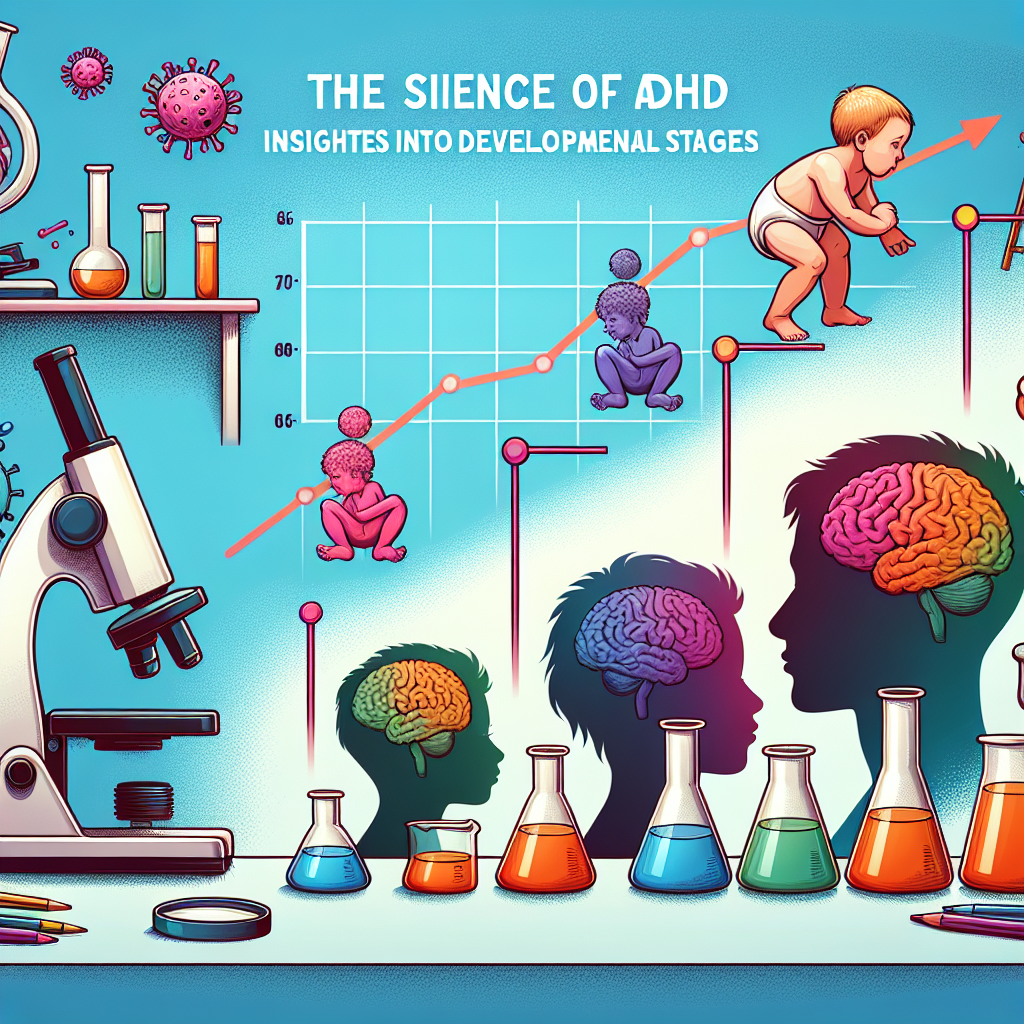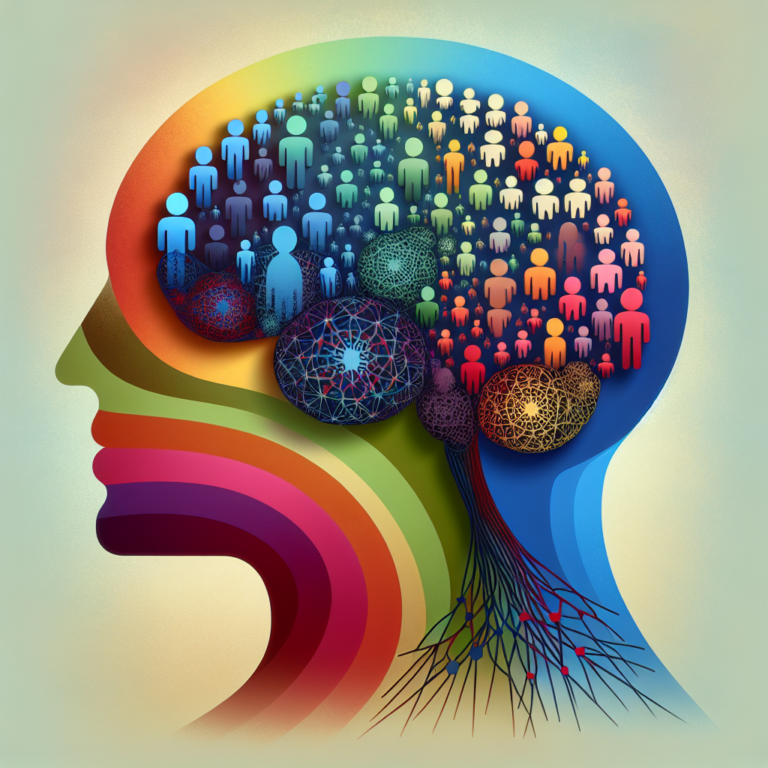
Introduction
Attention-Deficit/Hyperactivity Disorder (ADHD) affects millions of individuals worldwide, influencing not only their educational and professional trajectories but also their relationships and self-esteem. Understanding ADHD is crucial for providing better support, fostering healthier environments, and enhancing coping mechanisms. In this article, we delve deep into The Science of ADHD: Insights into Developmental Stages, exploring how ADHD manifests at various life phases, its neurobiological underpinnings, and practical strategies for navigating its complexities.
Understanding ADHD: A Brief Overview
Before we explore developmental stages, it’s essential to establish a foundational understanding of ADHD. This neurodevelopmental disorder is typically characterized by symptoms of inattention, hyperactivity, and impulsivity. The diagnosis usually occurs in childhood, but many individuals continue experiencing symptoms into adulthood. Research has shown that ADHD is often hereditary and involves intricate interactions between genetic and environmental factors.
ADHD Symptoms Across the Lifespan
ADHD symptoms can vary significantly depending on age.
Table 1: Common ADHD Symptoms by Developmental Stage
| Age Group | Symptoms |
|---|---|
| Preschool | Impulsivity, hyperactivity |
| Childhood | Inattention, difficulty with organization |
| Adolescence | Restlessness, academic challenges |
| Adulthood | Impulsivity, relationship issues, low tolerance for boredom |
The Science of ADHD: Insights into Developmental Stages
Early Childhood (0-5 Years)
In early childhood, ADHD may present itself as high energy levels and impulsive behaviors. Parents often notice these traits as their children engage with their environment. Neurobiological studies suggest that developing brains in children with ADHD show differences in the prefrontal cortex and basal ganglia, areas responsible for attention and impulse control.
Case Study: Young Explorers
A study of toddlers found that children with pronounced impulsivity had significantly lower activity levels in their prefrontal cortex. This stage is crucial for identifying undiagnosed ADHD, as professional support can help parents implement behavioral strategies that nurture healthy development.
Childhood (6-12 Years)
As children enter school, ADHD symptoms are often academically restrictive. Challenges in focusing during lessons or completing homework can lead to academic underperformance. Insight into developmental stages reveals that children’s brains continue to change significantly, affecting their ability to manage distractions and complete tasks.
Chart 1: Academic Performance in Children with ADHD vs. Typical Development
| Age | % of Students with Academic Challenges |
|---|---|
| 6 | 30% |
| 8 | 50% |
| 10 | 65% |
Active intervention during these years, such as implementing structured routines and positive reinforcement, can drastically improve outcomes.
Adolescence (13-19 Years)
The adolescent years can pose unique challenges for teenagers with ADHD, including increased social interactions and higher academic expectations. Hormonal changes can amplify symptoms, leading to a greater risk of co-occurring mental health issues, such as anxiety and depression.
Case Study: The Transition Period
A longitudinal study involving adolescents found that those with untreated ADHD were more likely to face challenges in transitioning to adulthood, including higher rates of substance abuse. Educational support and counseling can significantly help during this transitional phase, making clear the necessity for ongoing support reflecting The Science of ADHD: Insights into Developmental Stages.
Adulthood (20+ Years)
Many adults with ADHD may become adept at managing their symptoms, but challenges still persist. Issues such as difficulty with time management, maintaining relationships, or dealing with daily stressors can lead to frustrations. The science increasingly suggests that adults may benefit from coaching and practical strategies rather than traditional therapy alone, promoting a more individualized approach.
Case Study: Success and Management
A case involving an adult diagnosed with ADHD later in life highlights how personalized interventions—like time management apps and cognitive-behavioral therapy—help individuals thrive both personally and professionally.
Practical Strategies for Each Developmental Stage
- Early Childhood: Establish routine and consistency in daily activities.
- Childhood: Encourage organization and learning strategies tailored to individual needs. Utilize rewards for task completion.
- Adolescence: Foster independence while providing ongoing guidance. Promote self-advocacy skills in academic settings.
- Adulthood: Use technology, like reminders or apps, to assist with organization and time management. Consider therapy or coaching for personalized strategies.
Conclusion
Understanding The Science of ADHD: Insights into Developmental Stages illuminates the unique challenges and opportunities individuals face as they grow. Whether it’s guiding a young child through their first academic challenges or supporting an adult in their career aspirations, the importance of tailored approaches cannot be overstated.
By staying informed and proactive, we can foster understanding, compassion, and support for those living with ADHD. Every developmental stage presents a chance to build resilience and discover strategies that empower individuals, allowing them to thrive.
FAQs
1. What is ADHD?
ADHD is a neurodevelopmental disorder characterized by symptoms of inattention, hyperactivity, and impulsivity.
2. Can ADHD be diagnosed in adults?
Yes, ADHD can be diagnosed in adults, often when they recognize long-standing challenges in their lives.
3. Are there any effective treatments for ADHD?
Treatment may include behavioral therapies, medication, and personalized strategies tailored to individual needs.
4. How can parents support a child with ADHD?
Parents can help by establishing routines, reinforcing positive behaviors, and seeking professional support.
5. Is ADHD hereditary?
Yes, studies suggest a genetic component to ADHD, with family history playing a significant role.
This comprehensive overview reflects The Science of ADHD: Insights into Developmental Stages while providing actionable insights and fostering a deeper understanding of this complex disorder. By approaching ADHD with compassion and informed strategies, we can create supportive environments that empower individuals across all developmental stages.














